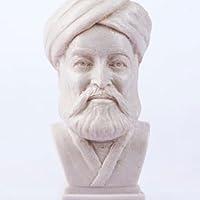
Al-Farabi
عن المؤلف
Al-Farabi, often referred to as the 'Second Teacher' after Aristotle, was a prominent philosopher and polymath of the Islamic Golden Age. His works encompass a wide range of subjects, including philosophy, logic, ethics, and political theory. He is best known for his attempts to synthesize Greek philosophical thought with Islamic teachings, laying the groundwork for future scholars in both the Islamic and Western intellectual traditions. Al-Farabi's most notable contributions include his writings on political philosophy, where he elaborates on the ideal state and the role of the philosopher-king. His thoughts on governance and society reflect a deep understanding of human nature and the complexities of political life.
In addition to his philosophical pursuits, Al-Farabi made significant strides in music theory and the sciences. He wrote extensively on the classification of knowledge and the importance of education in cultivating virtuous citizens. His influence persisted through the centuries, impacting later philosophers such as Avicenna and Averroes. Al-Farabi's legacy continues to resonate today, as his ideas on ethics, governance, and the integration of reason and faith remain relevant in contemporary discussions of philosophy and political theory.